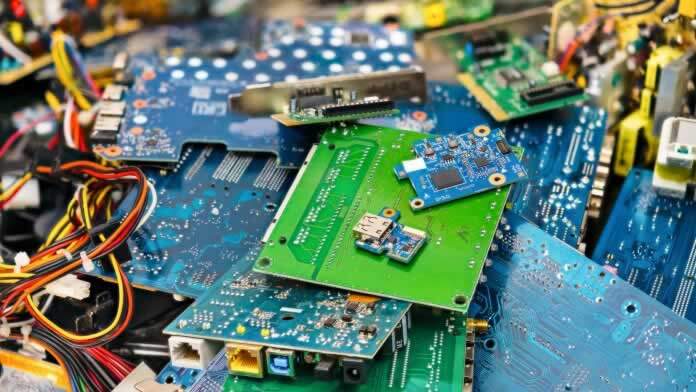From neglect to responsibility: Corporate waste reduction and eco-friendly production practices are now in the spotlight. If your business involves printed circuit boards, it's important to use proper recycling methods, especially for copper recovery. Copper is a valuable material that can be reused in various applications, and printed circuit board recycling focuses on its removal.

Special recycling methods for printed circuit boards are necessary due to the valuable materials, such as copper, contained within them. Disposing of printed circuit boards can result in the copper leaking into the environment through wastewater and solid waste, causing harm to the environment and wasting a valuable resource. Therefore, implementing proper printed circuit board recycling methods is not only beneficial for the environment but also economically advantageous. There are several valuable materials that can be recycled from printed circuit board waste. These include:
By recycling these materials, you can not only reduce waste and environmental damage, but also potentially recover valuable resources that can be reused or sold. If you're looking to recycle copper and tin from printed circuit boards, here are some steps you can take:
Recycling Copper from Edge Trim:Treat the edge trim with a stripping solution to dissolve precious metals like gold, silver, and platinum. Then use mechanical methods to shred and grind the trim before using a cyclone separator to pull the copper from the plastic resin.
Recovering Copper from Wastewater Sludge:Heat the sludge to 600-750 degrees Celsius to create copper oxide and then use a smelter to turn it into copper metal.
Recycling Copper from the Spent Basic Etching Solution:Adjust the solution to a weak acidic condition to produce copper hydroxide. Follow the process for removing copper from wastewater sludge. Recover leftover copper in the filtrate with selective ion exchange resins.
Recovering Copper Hydroxide from the Copper Sulfate Solution from the Plated Through Holes Process:Agitate the solution in a reactor while lowering the temperature to 10-20 degrees Celsius with a chiller. Use a centrifuge to recover the copper sulfate crystal and adjust the pH of the effluent to recover the remaining copper hydroxide.
Recovering Copper from the Rack Stripping Process:Use electrowinning with an electric winning reactor to recover the copper ions as metal copper from the spent nitric acid.
Recycling Copper from the Spent Tin/Lead Stripping Solution from the Solder Stripping Process:After the etching process, remove the protective solder plate to expose the copper connections. Strip the tin and lead from the solder plate by immersing the printed circuit board in nitric acid or a hydrogen fluoride stripping solution. Use electrowinning to recover the copper and lead, as well as tin oxides, which can be filter-pressed.
Recovering Tin from the Hot Air Leveling Process:Heat the tin/lead solder dross in a reverberatory furnace at 1400-1600 degrees Celsius to separate the tin. Deslag to remove iron before putting it in a melting furnace with sulfur to remove the copper. While these processes may seem complex, once you establish a system for recycling printed circuit board material, it can be quite straightforward. You can recover valuable metals to reuse or sell while protecting the environment and benefiting your bottom line.
Looking for a reliable source for printed circuit boards?Look no further than Sprintpcb! We offer a wide selection of circuit boards at competitive prices, and you can easily request a quote by contacting us online. Whether you have questions about PCBs, the recycling process, or any other aspect of PCB-related products, our team is here to help. Feel free to give us a call anytime at +86-755-2359 0691.

Customer support